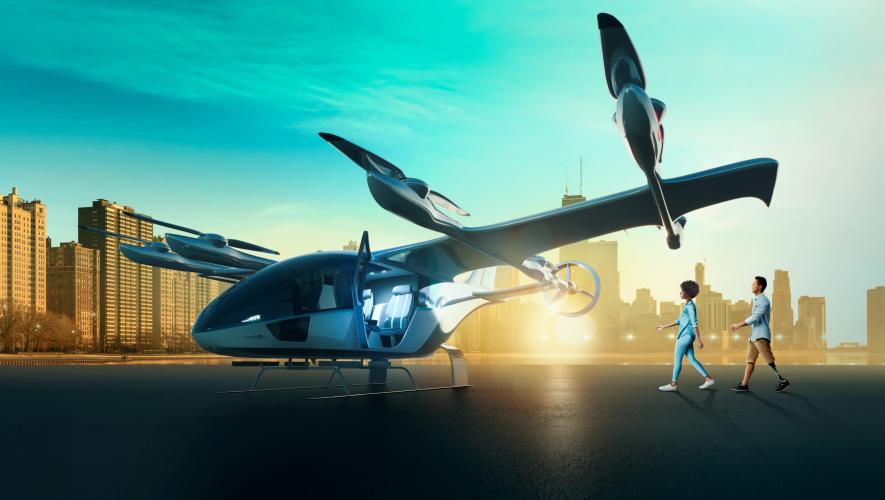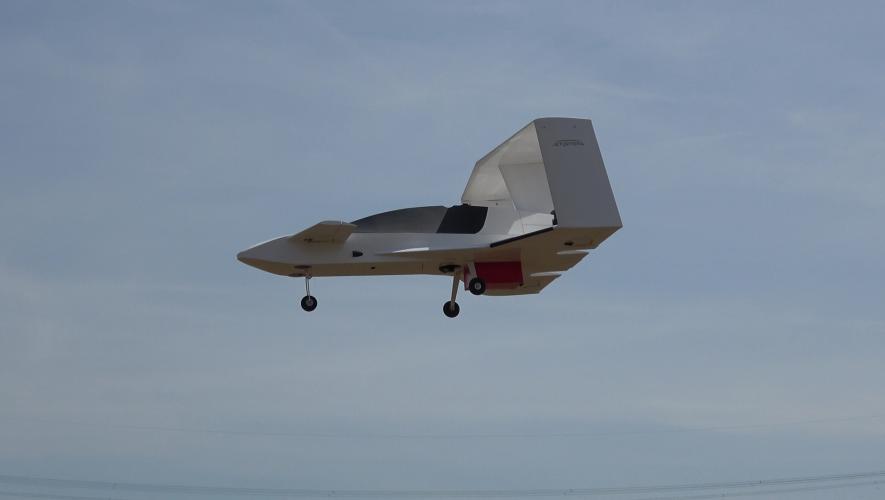Latest FutureFlight Videos
All Videos
FUTURE FLIGHT
Sign up for our free newsletter
News and analysis covering cutting-edge aviation technology and business models, including zero-carbon propulsion, eVTOL aircraft, automation and autonomy, and new infrastructure.
FutureFlight News
FutureFlight
Hypersonic Aircraft Developer Destinus Resumes Test Flights with 'Jungfrau' Prototype
Destinus, a Swiss start-up that aims to develop a hydrogen-powered hypersonic aircraft for high-speed cargo deliveries, has resumed test flights with its Jungfrau technology demonstrator.

FutureFlight
Kaman Prepares To Start Flight Testing of Kargo UAV Autonomous Logistics Platform
The specialist helicopter manufacturer believes it can save lives and costs by replacing crewed helicopters with its new 500-pound autonomous vehicle for military resupply missions.

FutureFlight
Regent Says Approval in Principle Marks Key Step to Certification of Electric Sea Glider
The U.S start-up has been supported by Bureau Veritas Marine & Offshore as it steps up the certification process for its family of sea gliders. It now expects to engage with the U.S. Coast Guard on the next stage in the process.

FutureFlight
Beta eVTOL Aircraft Battery Catches Fire While Awaiting Ground Testing
Vermont-based eVTOL developer Beta Technologies says no one was injured after a fire erupted in a shipping container outside its headquarters at Burlington International Airport.

FutureFlight
Victoria Seeks Advanced Air Mobility Leadership Role in Australia
The Australian state's government has issued an advanced air mobility policy document to support the development of advanced air mobility and Melbourne could get the country's first vertiport for eVTOL aircraft flights.

FutureFlight
MintAir Orders 40 Jaunt Journey eVTOL Air Taxis for Korean Market
The Korean start-up will serve as Jaunt's exclusive partner in Korea's budding advanced air mobility market.

FutureFlight
Zeva Aero Introduces Z2 Wing-Body eVTOL Prototype
Zeva Aero, the company behind the flying saucer-shaped Zero eVTOL that made its inaugural test flight earlier this year, is working on a new prototype of its unique aircraft concept.

FutureFlight
EvFly Shops for eVTOL and eCTOL Aircraft To Support Asian Air Mobility Service
The new Singapore-based operator expects to start air taxi services in Thailand and has wider plans to build a flight network across Southeast Asia, as well as in the Middle East and Africa.

FutureFlight
GKN and Partners Step Up Liquid Hydrogen Fuel System Tests for Aircraft
Filton Systems Engineering and Fabrum have developed test equipment to help GKN Aerospace advance technology to fuel aircraft propulsion systems with liquid hydrogen.

FutureFlight On The Radar
ASTM International Publishes First Standards for Vertiport Design
The U.S.-based industry standards group has taken five years to develop specific guidance about how to design vertiports and vertistops for new VTOL aircraft.
FutureFlight On The Radar
Researchers Devise New Method to Extend the Lifespan of Lithium-Ion Batteries
A new South Korean study could pave the way for electric aircraft to make longer flights and require less frequent battery replacements.
FutureFlight
Eve to Conduct UAM Simulation Out of Chicago Vertiport Using Helicopters
Blade Air Mobility helicopters will fly between Chicago and two suburban heliports as part of the Eve UAM simulation.

FutureFlight
FAA Accepts Reliable Robotics' Certification Basis For Pilotless Technology
The FAA has accepted Reliable Robotics' certification basis for the advanced navigation and autoflight system, which should receive supplemental type certification next year.

FutureFlight
Ryse's Ultralight eVTOL Aircraft for Farmers Makes First Piloted Test Flights
A new eVTOL aircraft designed with farmers in mind has successfully performed its first piloted test flights.

FutureFlight
U.S. Air Force's HSVTOL Challenge Propels Jetoptera Fluidic Propulsion Technology
The start-up believes it can deliver a quantum leap in performance with technology using a small flow of compressed air from a turbo-compressor to suck in a much greater volume of ambient air, creating a vortex that significantly amplifies the airflow.

FutureFlight
XTI Reboots Plans for TriFan VTOL Aircraft Family with Off-the Shelf Propulsion
The TriFan 600 is now expected to take until 2027 to enter commercial service, carrying between four and six passengers in various business and airline applications.

FutureFlight
Xwing Says Cargo Operations Are the Fast-track to Autonomous Commercial Flights, But Passenger Acceptance Is a Long Way Off
The company has acquired three cargo delivery operators as it seeks to demonstrate that its technology can support flights without a pilot on board that could make services far more cost-efficient.

FutureFlight
Harbour Air’s All-Electric Beaver Performs First Point-to-Point Test Flight
The first eBeaver flew a 45-mile trip between Vancouver and Victoria, Canada, in 24 minutes.

FutureFlight
EHang Reports Progress on EH216 eVTOL Certification and Income from Preorders
New customers for the two-passenger, autonomous eVTOL aircraft include China's Tianxingjian Cultural Tourism Investment and Development and Prestige Aviation in Indonesia.

FutureFlight
American Airlines Places Deposit On Supersonic Airliner Order
The planned Overture supersonic airliner is expected to carry between 65 and 85 passengers on flights of up to 4,250 nm and at speeds of up to Mach 1.7.










